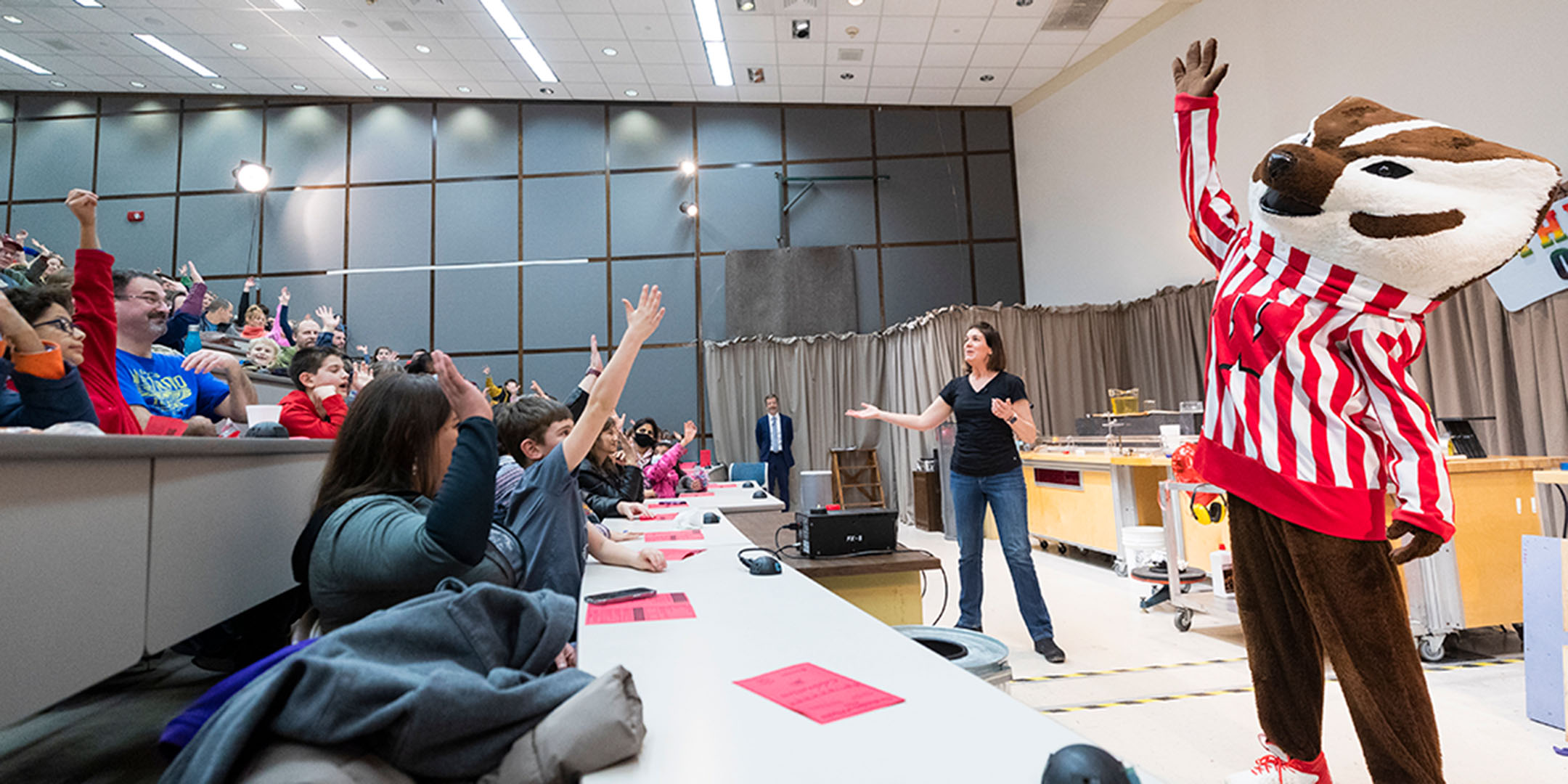
UW–Madison believes in the wonder of learning, and outreach is an important aspect of inspiring that wonder in future generations of Badgers. Programs such as The Wonders of Physics and the Wonders of Pharmacy rely on annual funds to connect with audiences on campus and beyond.
The Wonders of Physics program, which began more than 40 years ago, is generating interest in the field of physics for people of all ages and backgrounds. The shows vary in theme from year to year and offer fun, engaging, and discussion-generating demonstrations that help audiences better understand examples of physics in the world around them.
Professor Emeritus Clint Sprott MS’66, PhD’69 founded the program in 1984, and since then, more than 300,000 people have seen the shows, including minority, rural, and low-income groups. Both Sprott and the department are deeply committed to this type of outreach and generously use their resources for this event, including the involvement of graduate students and faculty members. Current plans are to continue expanding the program, which will allow early access to promising young scientists across the state.
“Never has there been a time when an understanding of science has been more important to the well-being of individuals and to the nation than the present,” says Sprott.
The Wonders of Pharmacy program — an in-person, interactive event inspired by the Wonders of Physics and exclusively designed for high school students — hosted its first event in March 2024. Funded in part by vital annual contributions, the program’s goal is to offer students a chance to explore the world of pharmacy and comprehend the roles pharmacists play in academics, health care systems, community pharmacies, and the pharmaceutical industry.
“I hope more students will now see what pharmacy is — it’s so much more than just making drugs or packing them into bottles,” says high-school student attendee Oluwadara Fadiran.
The program is led by PharmD students and members of the School of Pharmacy’s Collaborative Research on Medication (CRoME) Lab for an interdisciplinary approach that aims to emphasize why people are drawn to the field of pharmacy. There are 30 stations with differing areas of focus and reflection, including some with alumni and practicing pharmacists for the benefit of those attending.
“Young people need deeper reasons, more meaningful reasons to want to be pharmacists,” says Associate Professor Olufunmilola Abraham MS’11, PhD’13, who leads the CRoME Lab. “They want to understand that they can make a difference.”
